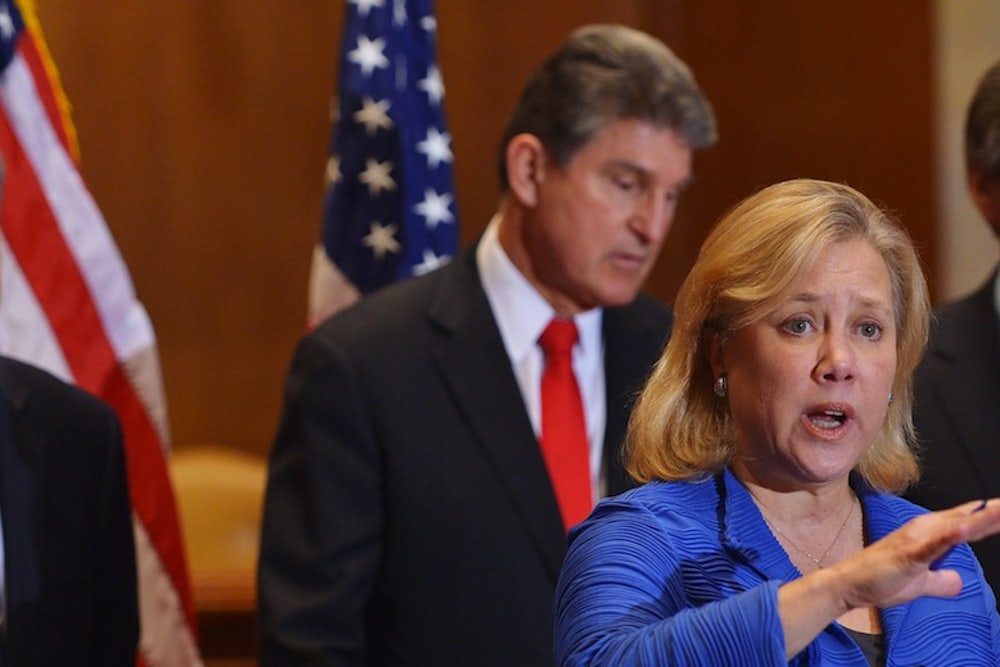A single vote in the Senate on Tuesday could determine the fate of legislation that fast-tracks approval of the controversial Keystone XL pipeline. There are 59 Senators who publicly back the bill. And the bill’s sponsor Mary Landrieu, a Louisiana incumbent who hopes this boosts her prospects in a long-shot runoff election in December, says she is “very comfortable” the bill will get the 60 votes needed for a filibuster-proof majority.
The strange thing about Keystone is that legislators intend to force its approval at a time when it has become irrelevant. It would carry 830,000 barrels a day of crude oil to refineries on the Gulf Coast where it would be processed into fuels.
However, since it was first proposed, the economics surrounding it have changed, with oil prices falling sharply, and the oil industry has pursued other options for oil transportation, including other pipeline projects and railroad shipments. Harold Hamm, an oil billionaire and CEO of Continental Resources, recently told Politico the debate is no longer relevant. “We’re supporting other pipelines out there, we’re not waiting on Keystone,” he said. “Nobody is.” Bloomberg News quoted several energy consultants that said the same. TransCanada’s CEO, however, continues to make the case that its pipeline will be necessary.
This doesn’t make the arguments in favor of the pipeline any stronger. In fact, they continue to be weak. Supporters tout the construction jobs it creates, a heavily disputed number, and how it can affect energy prices, though there is little evidence it will have an impact. When those arguments have failed, supporters say the oil will inevitably be produced, and transporting it by pipeline is generally safer than trains. If Keystone isn't built, then shipping the oil by another means will be more expensive for producers and less profitable.
Keystone has become a grassroots issue not just for the risks the oil pose to environmentally sensitive regions, but because it would help increase global carbon emissions by encouraging the expansion of Canada's vast tar sands reserves. Tar sands oil requires a more energy-intensive extraction process and so it is responsible for even more emissions than regular oil drilling. Because of this, Keystone has become a symbol for the climate movement to rally against—representing how governments and companies prioritize profit over preventing climate catastrophe.
But the six-year drama surrounding the pipeline probably isn’t over, just yet. President Barack Obama is expected to veto the bill, though the White House has not made any formal announcement. Of course, all this would just repeat itself in January when Republicans will surely have enough votes to send a Keystone bill to the president. They may even be within a few votes of the two-thirds needed to overcome a presidential veto.
Still, Keystone could be delayed again in a few weeks depending on what the Nebraska Supreme Court decides in a case about whether the state legislature had authority to approve the pipeline route.
—Rebecca Leber
FERGUSON: Missouri Governor Jay Nixon declared a state of emergency that allows him to activate the National Guard ahead of the grand jury's decision in the Michael Brown case. (Lisa Tozzi, Buzzfeed)
REGULATION: ProPublica released new recordings that show dysfunction at the New York Fed. Examiners complained of being blocked from doing their jobs, particularly at JPMorgan when the "London Whale" trades blew up. (Jake Bernstein)
EBOLA: Martin Salia, a doctor who was treating Ebola in Sierra Leone, died of the disease at the Nebraska Medical Center. The doctor, who has a wife and children in the United States, initially tested negative for Ebola, and it wasn’t until his symptoms worsened, more than five days later, he had the second test. (Kevin Sieff, Washington Post)
Articles worth reading
Love affair: Uber CEO Travis Kalanick said that Obamacare has been huge for the company. Jonathan Chait explains why that is so damning for the GOP. (New York)
Fournier-ing: Matt Yglesias explains what's wrong with the Ron Fournier school of political reporting that defines false equivalence. "If you don't understand that, you'll never understand today's politics. Worse, you'll be consistently making bipartisanship less likely." (Vox)
Those three little sentences: In three sentences on Sunday, the third-top Republican Senator, John Thune, admitted climate change is real and requires a policy response. Is this a shift in talking points? (Stephen Stromberg, Washington Post)
At QED
Jonathan Cohn explains what Jonathan Gruber’s role in Obamacare was—and what his quotes really tell us. Brian Beutler shows how “Grubergate” could impact the Supreme Court’s decision on Obamacare. Rebecca Leber writes about how Obama has driven a wedge between two powerful climate change—Prime Ministers of Canada and Australia. John Judis breaks down why Hillary is unlikely to win in 2016 (hint: it has more to do with the past than with the future).
